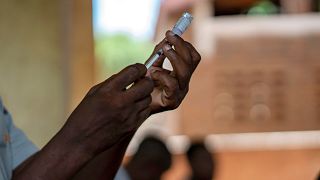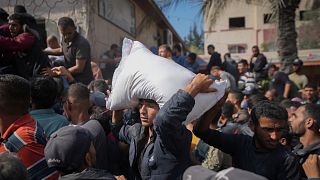Brazil
Brazil has intensified the war against the mosquito transmitting the Zika virus with the graduation of soldiers from weeks of special training to combat the Aedes aegypti mosquito.
Hundreds of thousands of soldiers are expected to take part in the public action phase against the virus that will kick start on Saturday with the distribution of leaflets to locals and raising awareness on the dangers of stagnant water and how to protect their homes from the mosquito causing virus.
“These leaflets and the presence of the military are always well received by the population, and this will help to spread knowledge. The important thing now is educating the Brazilian population about the problems the country is now facing with this diseases, which is not only here, it is in the United States and in other countries, which are aware that this is an international crisis,” said General Ramos, the military commander.
For most, Zika isn’t very serious only about 20% of people show symptoms and usually get better after a week.
But it can be very dangerous for pregnant women because experts believe they can cause their unborn child to develop microcephaly, a rare birth defect in which babies are born with under developed brains.
In relation to this, the World Health Organisation has advised women, and particularly pregnant women, to protect themselves from mosquito bites in Zika-affected areas and also to practice safe sex through the use of condoms.
On January 27th, health authorities in the country confirmed that 270 babies were born with microcephaly in the country, caused by a congenital infection.
Brazil's army battles the Zika virus, while scientists create GMO male mosquitoes to breed the virus extinct. https://t.co/CumhPIHusA
— AJ+ (@ajplus) February 4, 2016













Go to video
Nigeria's market doctors bring healthcare directly to traders
00:00
Pics of the day: April 18, 2025
Go to video
Nigerian Football Federation guilty of negligence in footballer's death
01:37
Indigenous and climate activists rally in Brasília ahead of COP30
01:54
Uganda: the infiltration of plastics into agricultural fields and food raise concern
00:47
Malaria confirmed as cause of deadly outbreak in DRC